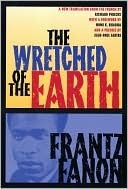More on this book
Community
Kindle Notes & Highlights
A colonized person must constantly be aware of his image, jealously protect his position, Fanon said to Sartre.
Fanon's two most influential texts, Black Skin, White Masks and The Wretched of the Earth, evoke the concrete and contrasting worlds of colonial racism as experienced in metropolitan France in the 1950s and during the anticolonial Algerian war of liberation a decade later.
The legacy of Fanon leaves us with questions; his virtual, verbal presence among us only provokes more questions. And that is as it should be. "O my body, make of me always a man who questions!" was Fanon's final, unfinished prayer at the end of Black Skin, White Masks.
When Fanon, on the contrary, says that Europe is heading for ruin, far from uttering a cry of alarm, he is offering a diagnostic. Dr. Fanon claims he neither considers it to be a hopeless case—miracles have been known to exist—nor is he offering to cure it.
In short, the Third World discovers itself and speaks to itself through this voice.
Europe, therefore, has hardened the divisions and conflicts, forged classes, and in some cases, racism, and endeavored by every means to generate and deepen the stratification of colonized societies. Fanon hides nothing.
In order to wage the struggle against us, the former colony must wage a struggle against itself.
This is what Fanon explains to his brothers in Africa, Asia, and Latin America: we shall achieve revolutionary socialism everywhere and all together or we shall be beaten one by one by our former tyrants.
Our methods are outdated: they can sometimes delay emancipation, but they can't stop it. And don't believe we can readjust our methods: neocolonialism, that lazy dream of the metropolises, is a lot of hot air; the "Third Force" does not exist or if it does it is the phony bourgeoisie to which colonialism has already handed over power.
decolonization is always a violent event. At whatever level we study it—individual encounters, a change of name for a sports club, the guest list at a cocktail party, members of a police force or the board of directors of a state or private bank—decolonization is quite simply the substitution of one "species" of mankind by another.
The colonist's sector is a sector built to last, all stone and steel. It's a sector of lights and paved roads, where the trash cans constantly overflow with strange and wonderful garbage, undreamed-of leftovers. The colonist's feet can never be glimpsed, except perhaps in the sea, but then you can never get close enough. They are protected by solid shoes in a sector where the streets are clean and smooth, without a pothole, without a stone. The colonist's sector is a sated, sluggish sector, its belly is permanently full of good things. The colonist's sector is a white folks' sector, a sector
...more
other, the shacks squeezed tightly together. The colonized's sector is a famished sector, hungry for bread, meat, shoes, coal, and light. The colonized's sector is a sector that crouches and cowers, a sector on its knees, a sector that is prostrate. It's a sector of niggers, a sector of towelheads. The gaze that the colonized subject casts at the colonist's sector is a look of lust, a look of envy. Dreams of possession. Every type of possession: of sitting at the colonist's table and sleeping in his bed, preferably with his wife. The colonized man is an envious man. The colonist is aware of
...more


